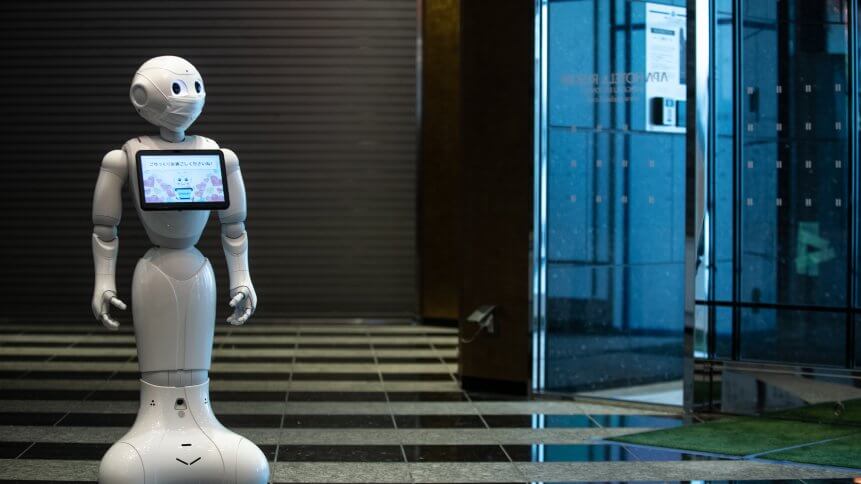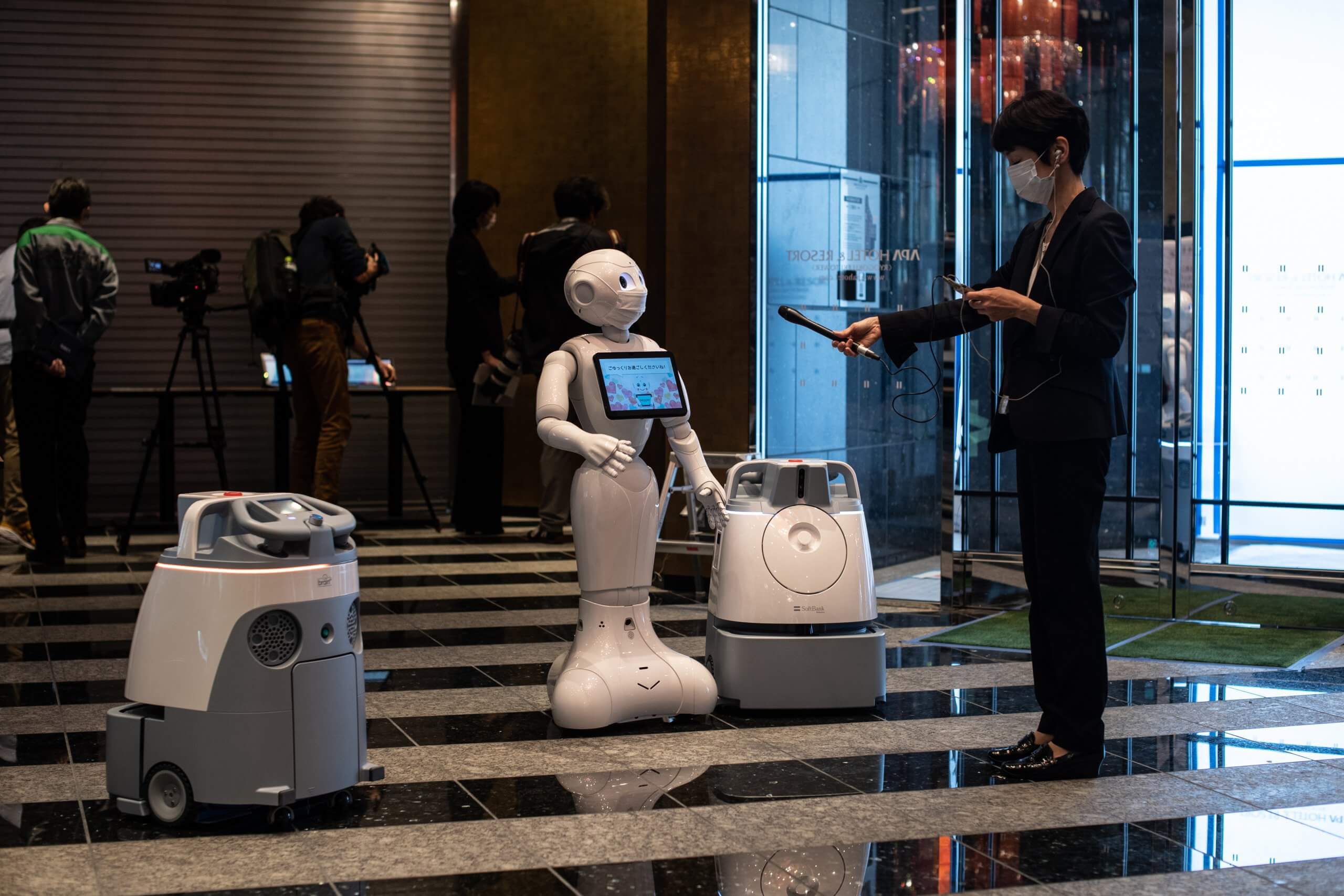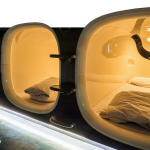Meet the robots at your service in the hospitality industry

- The pandemic has indirectly driven a trend of automation in the hospitality sector
- Major hotel chains are now enlisting robotic employees
- Hospitality robots can lower the risks of potentially unsafe contact between hotel staff and guests
In Japan, some hotels are housing patients who have tested positive for the coronavirus, but whose symptoms are too light to require hospitalization. The plan is set to free up beds at hospitals that are otherwise overburdened with more severe cases.
What’s interesting is robots are enlisted to help ease hotel workload. Humanoid robot Pepper, a creation of SoftBank Robotics, wears a mask and greets new guests at the lobby, reminding guests to also put on a mask themselves.

Pepper with two other cleaning robots in the lobby of a hotel. Source: AFP
Pepper is also programmed to convey uplifting messages such as “I hope you recover as quickly as possible,” and rather more earnestly, “I pray the spread of the disease is contained as soon as possible,” as well as, more cryptically, “Let’s join our hearts and get through this together.”
While some hotels are converted to temporary facilities to house patients tested positive for the coronavirus, the role of robots has subsequently changed as well; with some, like in the case of Pepper, taking on more light-hearted roles in greeting patients and keeping spirits up, some robots are officially employed to sustain hotel operations.
Global hotel chains such as Marriot and Hilton are rolling out robots to ensure social distancing is imposed. Known as the “social distancing robot ambassador,” Rosé is a three-foot-tall android that has transitioned from a novelty item to a necessity amid the pandemic.
Rosé made its debut in mid of 2018 and soon finds itself shouldered with a new responsibility of ensuring pandemic-induced social distancing measures are followed. The hotel said guests were found to have a preference for a touchless experience, and Rosé is tasked to deliver everything from pillows, towels to groceries to hotel guests.
“For guests who prefer contactless deliveries, Rosé provides them with peace of mind as she can deliver items to their suite,” shared Scott Satterfield, General Manager of Hotel Trio.
Alongside room service, hotels are also enlisting robots to assist in more intensive cleaning rituals that are mandatory amid the pandemic. In Texas, the Westin Houston Medical Center hotel added two virus-zapping robots as their latest housekeeping staff.
The same robots are also used in hospitals, and they extinguish viruses and bacteria within minutes by emitting broad-spectrum ultraviolet light. This doesn’t mean that the hotel’s regular cleaning is replaced, instead, the robots provide additional cleaning that super-sterilizes the space without added chemical risks.
“On one level, we have given everything a deep clean and increased the frequency of cleaning the public areas, but we further enhanced our routine by adding the two robots,” said Archit Sanghvi from Pearl Hospitality, which owns and operates this Westin franchise.
Previously, robots in the hotel industry raise concerns that these machines may eventually be used to replace human employees. However, due to the pandemic, which saw many hotels reducing staff and restructuring employee shifts, there is an active pursuit of how robots can be used to take over labor tasks and reduce the risks of contact between people.
Global hotel chains such as Four Seasons, Hilton, and Marriott are part of the Hotel of Tomorrow Project that aims to develop concepts and ideas to address pressing industrial-wide challenges induced by the pandemic. The project led by Gettys Group saw the significance of technology and personalization in reviving and transforming the hospitality sector.
The project’s Robot Alliance is revolutionizing hotel services by envisioning “a deconstructed food and beverage experience in which autonomous robots serve guests wherever they choose to dine or drink inside or outside a hotel.”
This is an example of how robots are gradually stepping into customer-facing applications; it is likely that more concepts revolving around the active and versatile roles of robots in hotels will proceed.










